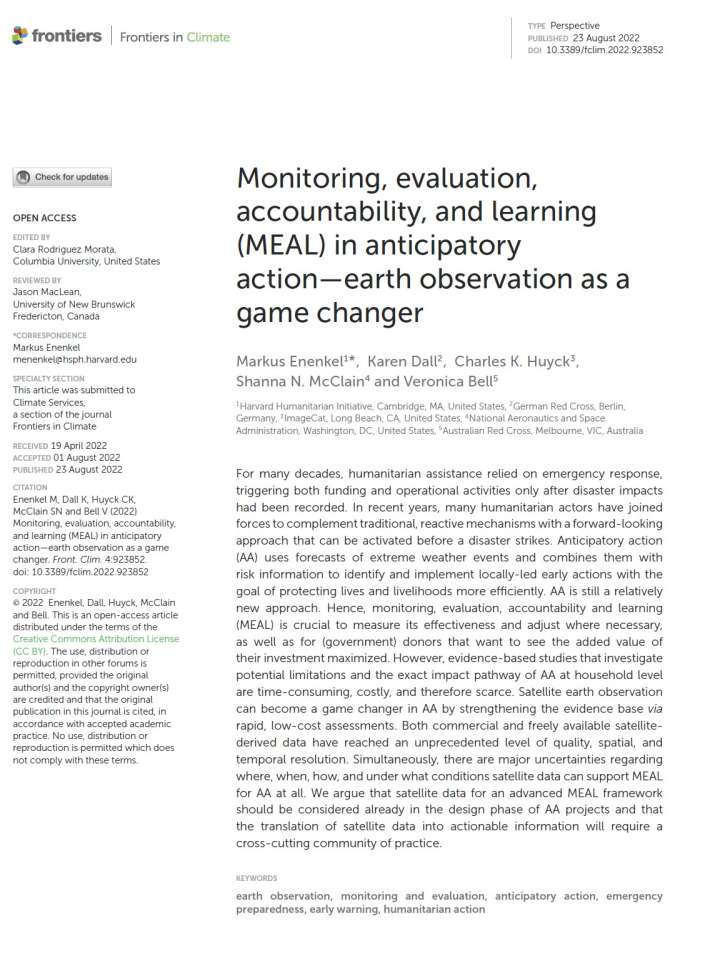Monitoring, evaluation, accountability, and learning (MEAL) in anticipatory action—earth observation as a game changer
This paper argues that satellite data for an advanced monitoring, evaluation, accountability and learning (MEAL) framework should be considered already in the design phase of anticipatory action (AA) projects and that the translation of satellite data into actionable information will require a cross-cutting community of practice. Satellite earth observation can become a game changer in AA by strengthening the evidence base via rapid, low-cost assessments. Both commercial and freely available satellite-derived data have reached an unprecedented level of quality, spatial, and temporal resolution.
For many decades, humanitarian assistance relied on emergency response, triggering both funding and operational activities only after disaster impacts had been recorded. In recent years, many humanitarian actors have joined forces to complement traditional, reactive mechanisms with a forward-looking approach that can be activated before a disaster strikes. Anticipatory action uses forecasts of extreme weather events and combines them with risk information to identify and implement locally-led early actions with the goal of protecting lives and livelihoods more efficiently. AA is still a relatively new approach: hence, MEAL is crucial to measure its effectiveness and adjust where necessary, as well as for (government) donors that want to see the added value of their investment maximized.
Explore further
